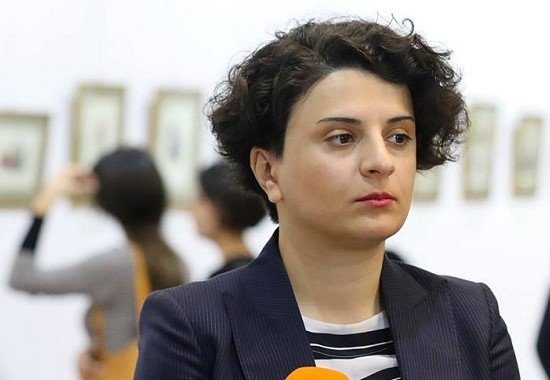Natia Mezvrishvili, deputy chairperson of the “Gakharia for Georgia” party, has strongly criticized the ruling Georgian Dream party’s statements regarding the current election campaign. Mezvrishvili claims that the assertions of a peaceful and fair election environment are entirely false. She argues that the scale of election violations and the inadequate response to these issues demonstrate a deeply flawed pre-election process. This controversy highlights the ongoing political tensions and challenges facing Georgia as it approaches its next election.
Allegations of Election Violations
Mezvrishvili has pointed to numerous instances of election violations that have not been addressed by the authorities. She claims that the Georgian Dream party has engaged in illegal surveillance and intimidation tactics against opposition supporters. According to Mezvrishvili, representatives from the Social Security Administration and local municipalities have been involved in monitoring and pressuring voters.
These allegations include the collection of photographic evidence showing voters being watched and intimidated during campaign events. Mezvrishvili asserts that this creates a hostile environment, preventing the opposition from effectively communicating with voters. Despite official appeals, there has been no legal or political response to these violations, further exacerbating the situation.

The lack of accountability and transparency in addressing these issues has raised significant concerns among opposition parties and civil society organizations. They argue that the current environment undermines the democratic process and erodes public trust in the electoral system. The international community has also expressed concern over these developments, calling for greater oversight and reforms.
Government’s Response and Denial
In response to Mezvrishvili’s accusations, the Georgian Dream party has denied any wrongdoing. They maintain that the election campaign is being conducted in a peaceful and fair manner, and that any claims to the contrary are politically motivated. The government has accused the opposition of attempting to discredit the electoral process for their own gain.
Prime Minister Irakli Garibashvili has reiterated the government’s commitment to ensuring free and fair elections. He has called on all political parties to respect the democratic process and refrain from spreading false information. The government has also highlighted its efforts to improve election security and transparency, including the implementation of new technologies and stricter regulations.
However, critics argue that these measures are insufficient and do not address the root causes of the problems. They contend that the government’s denial of the issues only serves to deepen the political divide and hinder meaningful dialogue. The opposition continues to call for independent investigations and greater international involvement to ensure a fair election process.
Broader Implications for Georgian Democracy
The ongoing controversy over the election campaign has broader implications for Georgia’s democratic development. The allegations of election violations and the government’s response have highlighted the deep-seated political divisions within the country. This situation poses a significant challenge to Georgia’s aspirations for greater integration with the European Union and other international bodies.
Mezvrishvili’s criticisms reflect a growing frustration among opposition parties and civil society organizations with the current state of democracy in Georgia. They argue that the government’s actions are undermining democratic institutions and eroding public confidence in the electoral process. This sentiment is echoed by many international observers who have called for comprehensive electoral reforms.
As Georgia approaches its next election, the stakes are high for all political actors. The outcome of this election will have a lasting impact on the country’s political landscape and its future trajectory. Ensuring a fair and transparent election process is crucial for maintaining public trust and advancing Georgia’s democratic aspirations.
